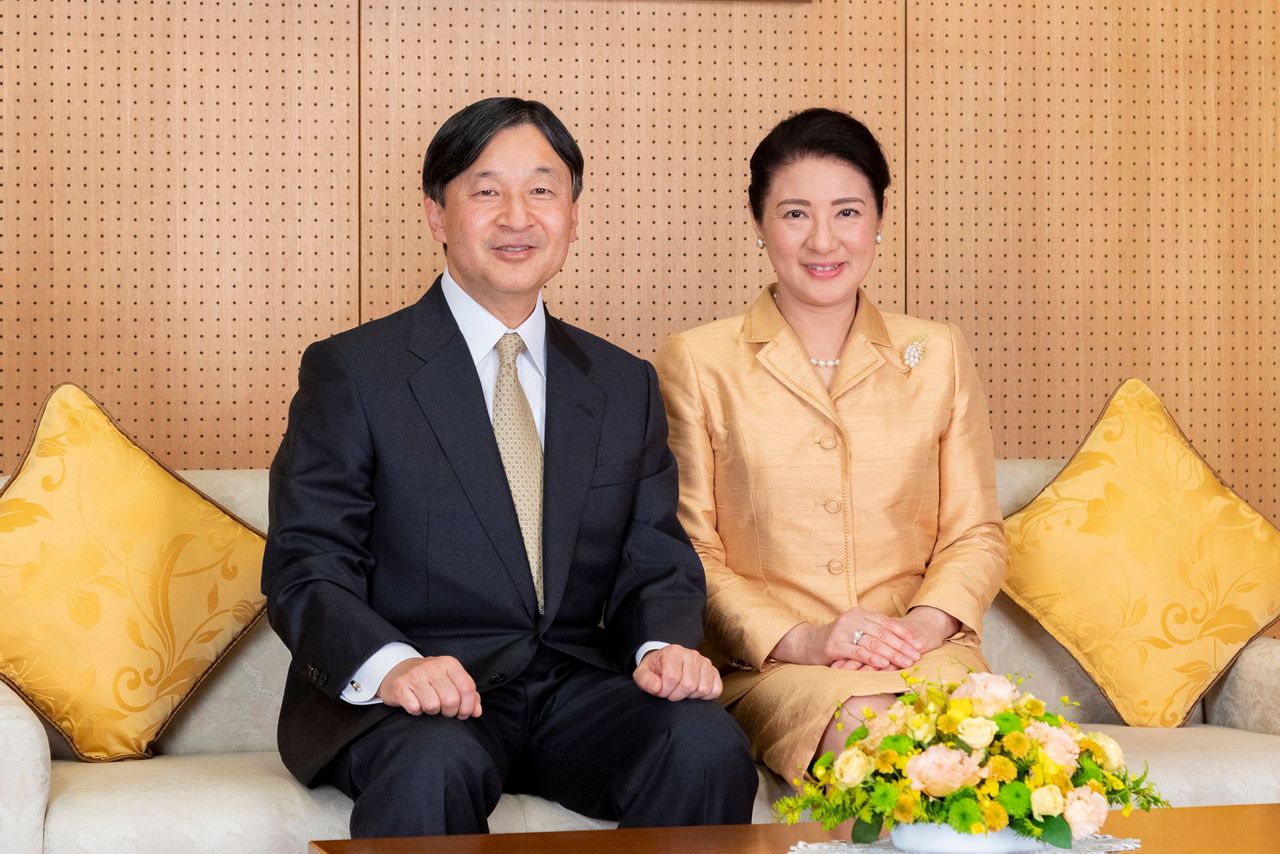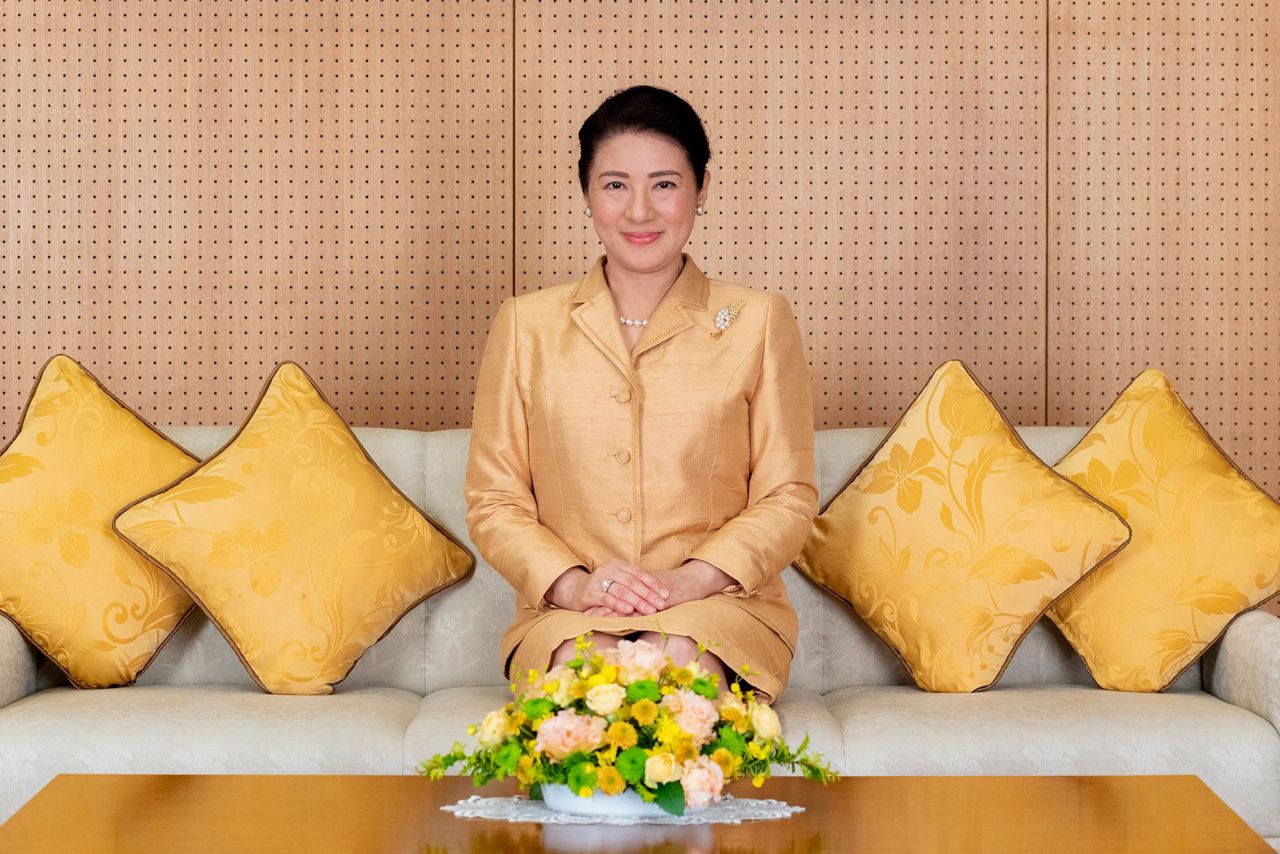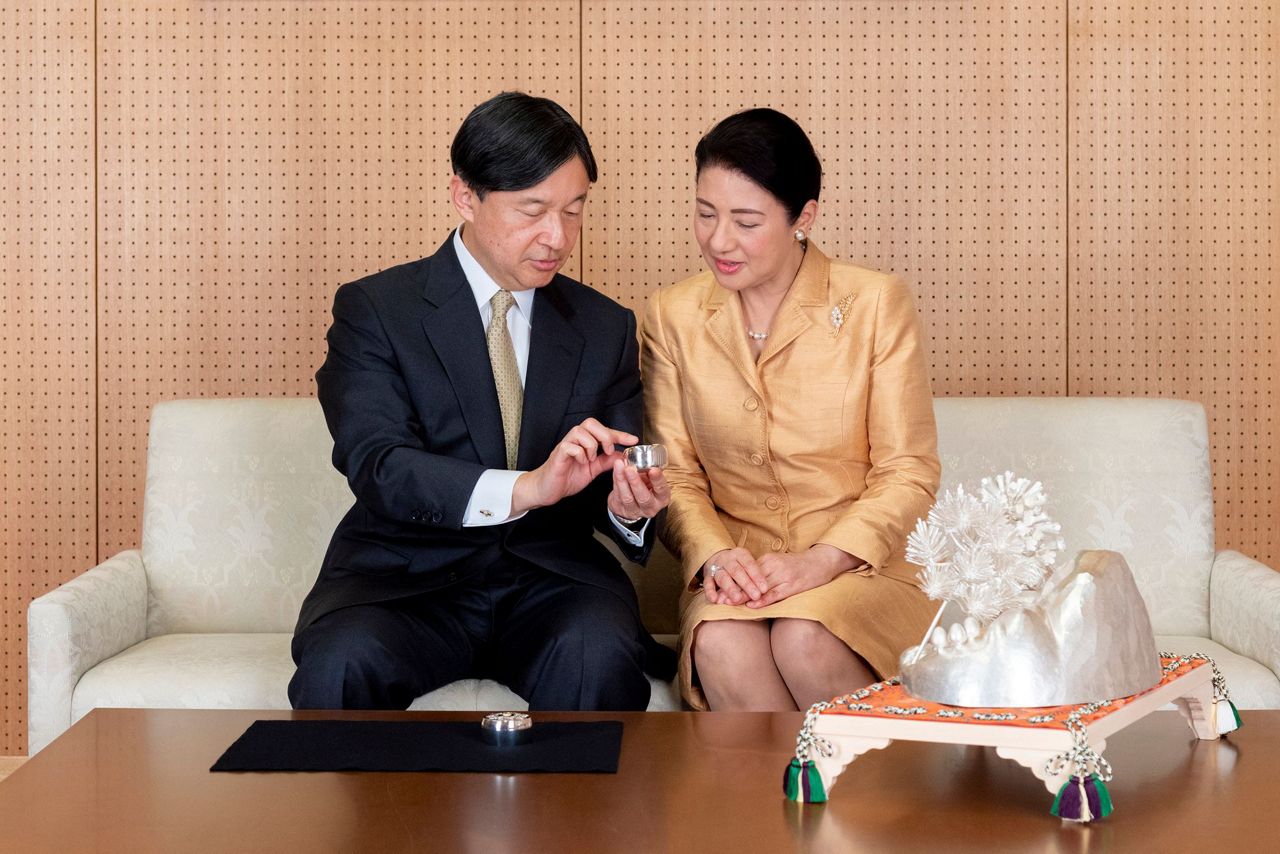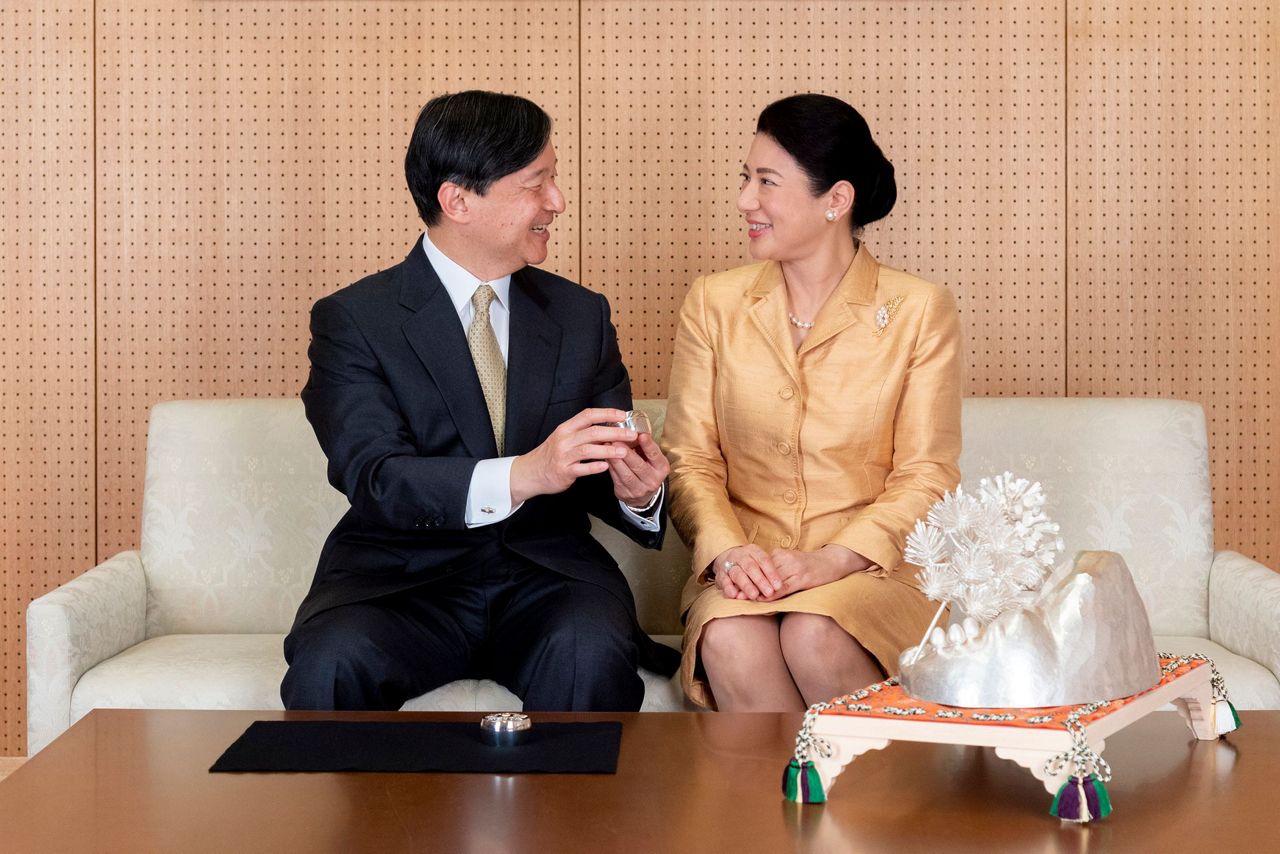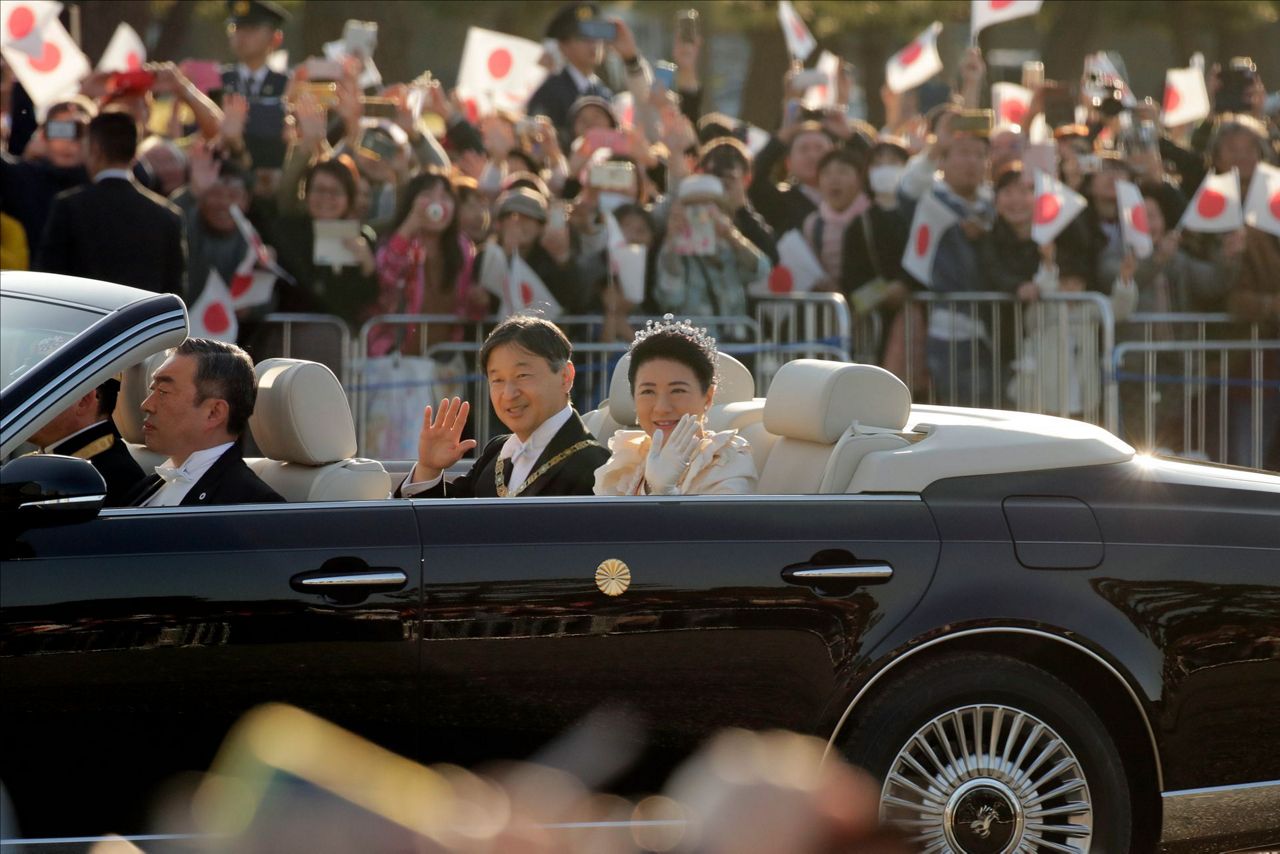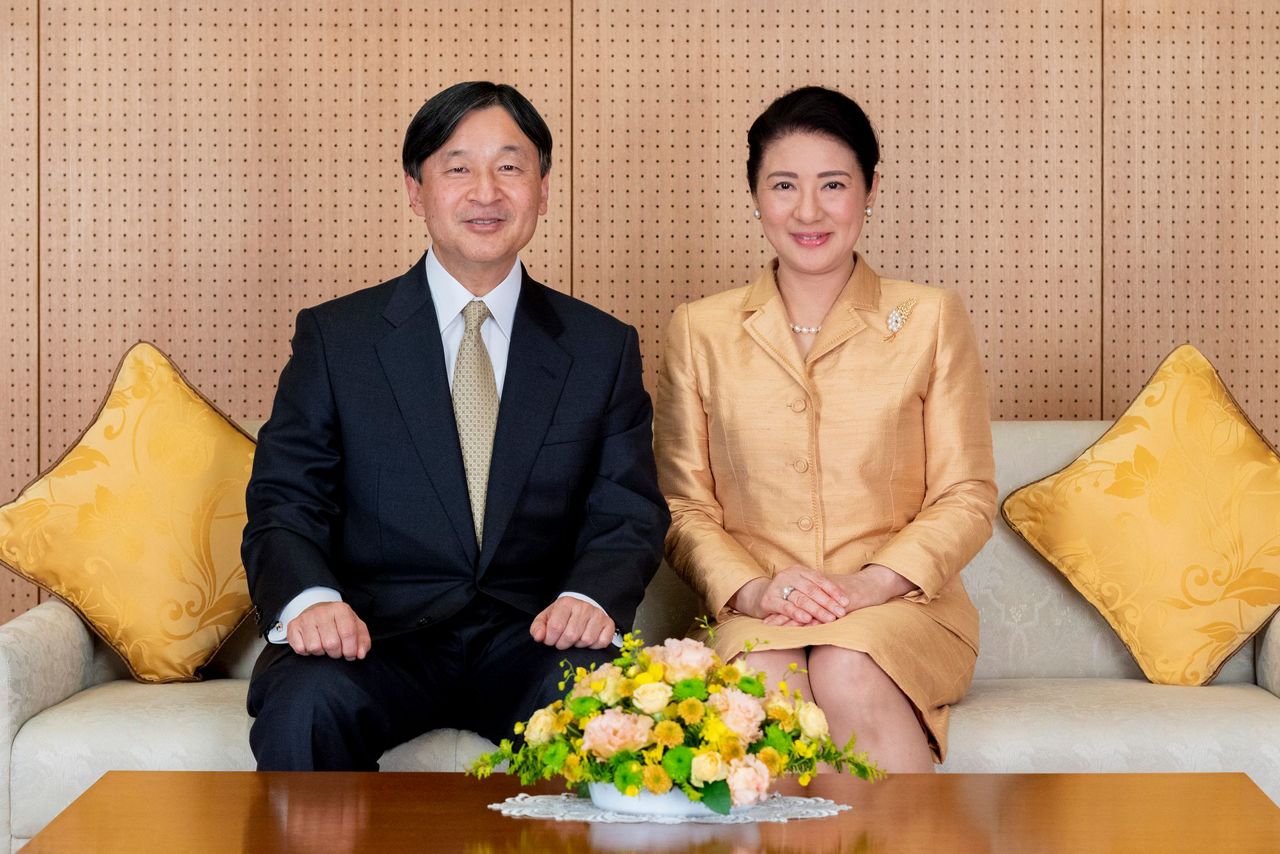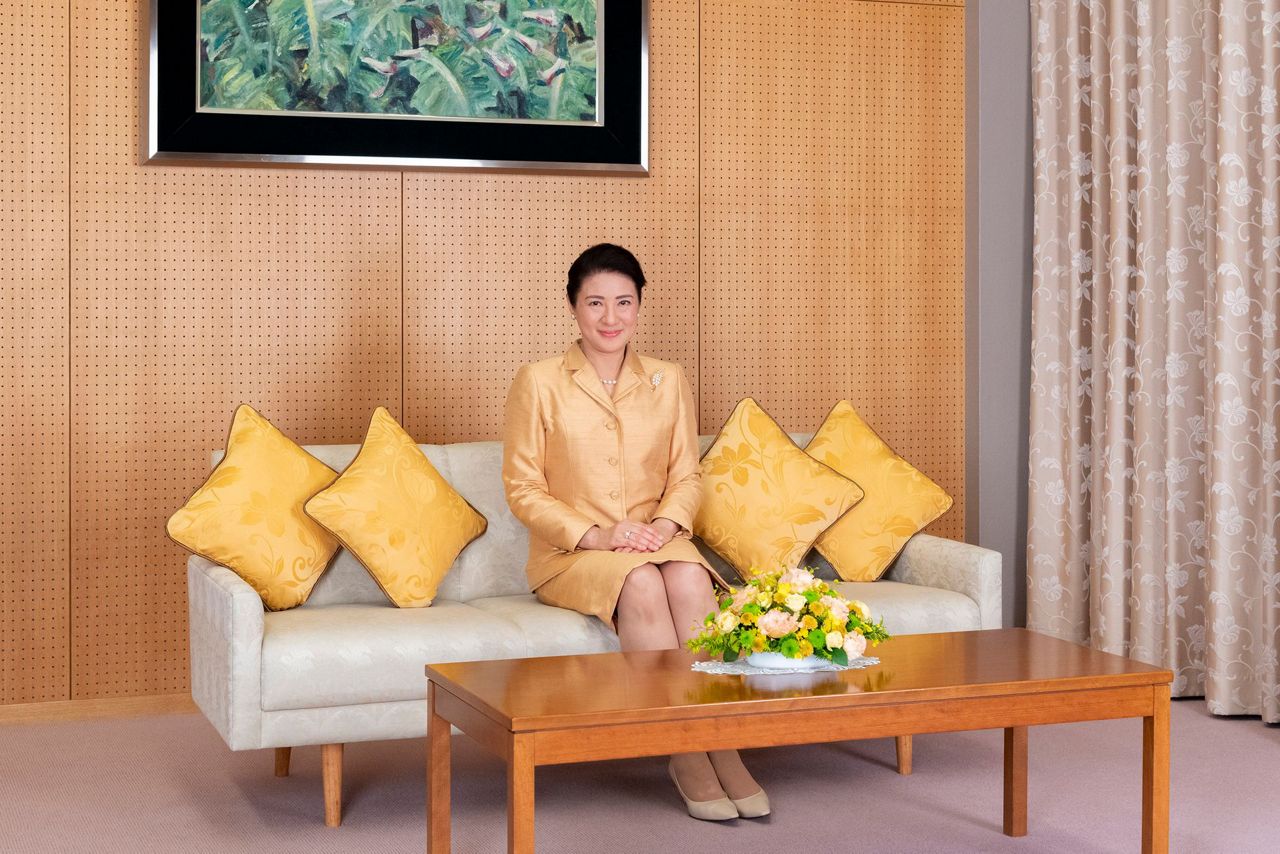TOKYO (AP) — Japanese Empress Masako, still recovering from stress-induced mental health issues, said Monday she was happy to have completed her duties as part of Emperor Naruhito's enthronement rituals and pledged to keep up the work and help her husband more for the happiness of the people.
In a palace statement marking her 56th birthday, Masako thanked people who have warmly welcomed the couple after Naruhito succeeded to the throne on May 1, following his father's abdication. “Many smiley faces I've seen in many places are precious memories for me and they will be my big moral support as I move forward," the statement said.
A Harvard-educated former diplomat, Masako had been largely absent from public appearances for years. She developed adjustment disorder, a condition marked by depression and other stress-induced symptoms, after giving birth to the couple's only child, Princess Aiko, and facing pressure to have a son to continue Japan's male-only imperial succession.
Naruhito’s succession rituals spanned from late April to early December, and Masako was seen smiling and seemed healthy at her public appearances. Her her doctors welcomed her accomplishment as a positive sign, but cautioned the people against raising their expectations too high, saying that could interfere with her recovery.
Masako's long absence from imperial events and trips had raised concern that she could do even part of the work done by hugely popular former Empress Michiko.
But she accompanied Naruhito at all events, including his first public greeting as emperor when some 140,000 people gathered. She sat next to Naruhito in an open car during a royal parade in November, enthusiastically waving to 119,000 well-wishers on the roadside, and she was seen overwhelmed with emotion and wiping tears with a handkerchief.
Masako thanked Naruhito for his consideration and support for her and said that she hoped to further improve her health so she can give him more support.
“I hope to fulfill my duty as Empress, while trying to further improve my health so that I can help His Majesty and work for the people’s happiness, together with him,” the statement released by the Imperial Household Agency said.
Her doctors said Masako has been able to expand her activities and regained confidence little by little as she constantly sought ways to maintain her health while taking care of her daughter, Princess Aiko. Warm welcome from the people also gave her encouragement.
But the doctors say she managed to complete her duties related to the enthronement ceremonies because of her strong sense of responsibility, not because she had fully recovered.
“We believe it’s desirable” that she was able to expand her activity, the doctors said in a statement that was also released by the palace.
“But she has not fully recovered and her conditions have ups and downs. She gets tired after a major event or after a series of events,” the doctors said. “Having over-expectations could go counter to her recovery.”
The doctors said it is important for Masako to continue her treatment while obtaining understanding and support from around her. “We hope you will continue to warmly watch over her recovery," they said.
There are expectations that Naruhito — who is Japan's first emperor with a college degree and who studied at Oxford — and Masako will internationalize the imperial household.
Many Japanese were particularly impressed when she and Naruhito casually chatted with President Donald Trump and first lady Melania without interpreters during their visit in late May as first state guests of the new emperor. The royal couple also freely conversed many foreign dignitaries who attended state banquets and tea parties to celebrate Naruhito’s enthronement in October.
As a former diplomat, Masako expressed concerns about global issues, including marine plastic pollution, poverty, child abuse and people in the conflicts-torn areas. She mourned for the death of Tetsu Nakamura, a Japanese doctor and aid worker who was gunned down in Afghanistan last week.
Copyright 2019 The Associated Press. All rights reserved. This material may not be published, broadcast, rewritten or redistributed.



